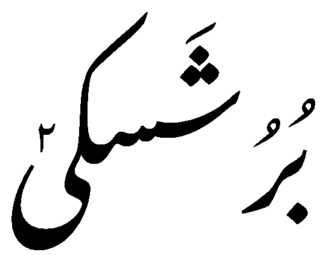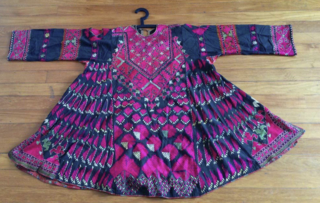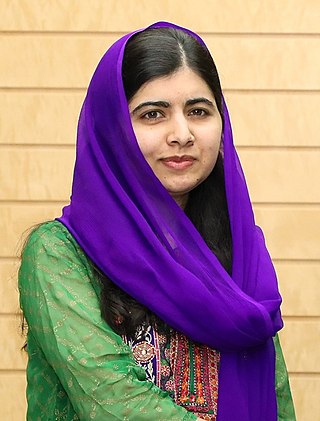
Burushaski is a language isolate, spoken by the Burusho people, who predominantly reside in the northern Gilgit-Baltistan, Pakistan. There are also a few hundred speakers of this language in the northern Jammu and Kashmir, India. In Pakistan, Burushaski is spoken by people in the Hunza District, the Nagar District, the northern Gilgit District, the Yasin Valley in the Gupis-Yasin District and the Ishkoman Valley of the northern Ghizer District. Their native region is located in northern Gilgit–Baltistan. It also borders with the Pamir corridor to the north. In India, Burushaski is spoken in Botraj Mohalla of the Hari Parbat region in Srinagar. It is generally believed that the language was spoken in a much wider area in the past. It is also known as Werchikwar and Miśa:ski.

Pakistan is a multilingual country with over 70 languages spoken as first languages. The majority of Pakistan's languages belong to the Indo-Iranian group of the Indo-European language family.

Rhaeto-Romance, Rheto-Romance, Rhaeto-Italian,or Rhaetian, is a purported subfamily of the Romance languages that is spoken in south-eastern Switzerland and north-eastern Italy. The name "Rhaeto-Romance" refers to the former Roman province of Raetia. The question of whether these languages actually form a subfamily is called the Questione Ladina. The Italian linguist Graziadio Ascoli, writing in 1873, found them to share a number of intricacies and believed they formed a linguistic group. The Rhaeto-Romance languages differ from Italian in their evolution from Latin by having passed through a stage with phonemic vowel length, undergone certain consonant developments, and possibly developed a pair of central rounded vowels. If the subfamily is genuine, three languages would belong to it: Romansh in Switzerland, and Ladin and Friulian in Italy. Their combined number of speakers is about 660,000; the large majority of these speak Friulian.

The Brahui, Brahvi, or Brohi are an ethnic group of pastoralists principally found in Pakistan, and to a smaller extent in Afghanistan and Iran. They speak Brahui, which belongs to the Dravidian language family.

Wakhi is an Indo-European language in the Eastern Iranian branch of the language family spoken today in Wakhan District, Northern Afghanistan, and also in Tajikistan, Northern Pakistan and Western China.

Swat District, also known as the Swat Valley, is a district in the Malakand Division of Khyber Pakhtunkhwa, Pakistan. Known for its stunning natural beauty, the district is a popular tourist destination. With a population of 2,309,570 per the 2017 national census, Swat is the 15th-largest district of Khyber Pakhtunkhwa.

Hollandic or Hollandish is the most widely spoken dialect of the Dutch language. Hollandic is among the Central Dutch dialects. Other important language varieties of spoken Low Franconian languages are Brabantian, Flemish, Zeelandic, Limburgish and Surinamese Dutch.

The Yidgha language is an Eastern Iranian language of the Pamir group spoken in the upper Lotkoh Valley of Chitral in the Khyber Pakhtunkhwa province of Pakistan. Yidgha is similar to the Munji language spoken on the Afghan side of the border.

Lieutenant General Hamid GulHI(M) SI(M) SBt was a Pakistani three-star general and defence analyst. Gul was notable for serving as the Director-General of the Inter-Services Intelligence (ISI), Pakistan's premier intelligence agency, between 1987 and 1989. During his tenure, Gul played an instrumental role in directing ISI support to Afghan resistance groups against Soviet forces in return for funds and weapons from the US, during the Soviet–Afghan War, in co-operation with the CIA.

Torwali is an Indo-Aryan language spoken by the Torwali people, and concentrated in the Bahrain and Chail areas of the Swat District in Pakistan. The Torwali language is said to have originated from the pre-Muslim communities of Swat. It is the closest modern Indo-Aryan language still spoken today to Niya, a dialect of Gāndhārī, a Middle Indo-Aryan language spoken in the ancient region of Gandhara.
Gawri (ګاوری), also known as Kalami (کالامي), or Bashkarik, is an Indo-Aryan language spoken in Swat Kohistan region in the upper Swat District and in the upper Panjkora river valley of Upper Dir District, Khyber Pakhtunkhwa, Pakistan.
Dawoodi, also known as Domaakí, Ḍumāki, or Domaá, is an endangered Indo-Aryan language spoken by a few hundred people living in the Gilgit-Baltistan territory in northern Pakistan. It is historically related to the Central Indo-Aryan languages of the Indian Midlands, though it has been significantly influenced by its neighbours.

Afghanistan is a linguistically diverse nation, with upwards of 40 distinct languages. However, Dari and Pashto are two of the most prominent languages in the country, and have shared official status under various governments of Afghanistan. Dari, as a shared language between multiple ethnic groups in the country, has served as a historical lingua franca between different linguistic groups in the region and is the most widely understood language in the country. Pashto is also widely spoken in the region; but the language does not have a diverse multi-ethnic population like Dari, and the language is not as commonly spoken by non-Pashtuns. Dari and Pashto are also "relatives", as both are Iranian languages.

Hindkowans, also known as the Hindki, is a contemporary designation for speakers of Indo-Aryan languages who live among the neighbouring Pashtuns, particularly the speakers of various Hindko dialects of Western Punjabi (Lahnda). The origins of the term refer merely to the speakers of Indo-Aryan languages rather than to any particular ethnic group. The term is not only applied to several forms of "Northern Lahnda" but also to the Saraiki dialects of the districts of Dera Ghazi Khan, Mianwali, and Dera Ismail Khan, which border the southern Pashto-speaking areas.

The Shina or Gilgitis are an Indo-Aryan ethnolinguistic group primarily residing in Gilgit–Baltistan and Indus Kohistan in Pakistan, as well as in the Dras Valley and Kishenganga Valley (Gurez) in the northern region of Jammu and Kashmir and Ladakh in India. They speak an Indo-Aryan language, called Shina and their geographic area of predominance is referred to as Shenaki.

The Kho or Chitrali people, are an Indo-Aryan ethnolinguistic group native to the Chitral District in Khyber Pakhtunkhwa, Pakistan and the Gupis-Yasin and Ghizer districts of Gilgit-Baltistan. They speak an Indo-Aryan language called Khowar.

Hazarewal refers to the inhabitants of the Hazara region in Northern Pakistan. This region is known for its multi-ethnic population, comprising various ethnic groups with diverse origins. The majority of the inhabitants belong to Dardic tribes, alongside communities of Punjabi and Pashtun tribes who migrated to the area.

Malala Yousafzai is a Pakistani female education activist and the 2014 Nobel Peace Prize laureate at the age of 17. She is the youngest Nobel Prize laureate in history, the second Pakistani and the only Pashtun to receive a Nobel Prize. Yousafzai is a human rights advocate for the education of women and children in her native homeland, Swat, where the Pakistani Taliban had at times banned girls from attending school. Her advocacy has grown into an international movement, and according to former Prime Minister Shahid Khaqan Abbasi, she has become Pakistan's "most prominent citizen."
Zubair Torwali is a community activist, linguist and educator based in Bahrain, Pakistan who has sought to preserve and promote Pakistan's Dardic cultures and languages. He has authored and supervised a number of books in and about Torwali. His book in English, Muffled Voices, provides insight into Pakistan's social, cultural, and political issues. Zubair Torwali is the Editor of "We Mountains" magazine which covers the culture of the Pakistani Himalayas. The author is a prolific writer of research papers and articles written for English dailies and weeklies of Pakistan. He is the founder of Idara Baraye Taleem-o-Taraqi, an organisation promoting the rights of marginalised language communities of northern Pakistan. He is author, researcher and public speaker. He is a member of the Human Rights Commission of Pakistan, a Fellow of Japan's 2013 Asian Leadership Fellow Program and was shortlisted for the International Bremen Peace Award 2015. Mr. Torwali is also a Public Peace Prize laureate "…for his extraordinary commitment to giving a voice to the unheard by helping increase literacy in the indigenous people of Northern Pakistan". He was awarded the 2012 Hellman-Hammett Grant by Human Rights Watch." In 2021 I.B.T. whose Director is Zubair Torwali was chosen for the Linguapax International Award. A graduate of Jahanzeb College in Swat, Pakistan, he has completed master's studies at University of Peshawar.
The Torwali people are an Indo-Aryan ethnolinguistic group located in the Swat district of Pakistan. The Torwali people have a culture that values the telling of folktales and music that is played using the sitar. They speak an Indo-Aryan language called Torwali.
















